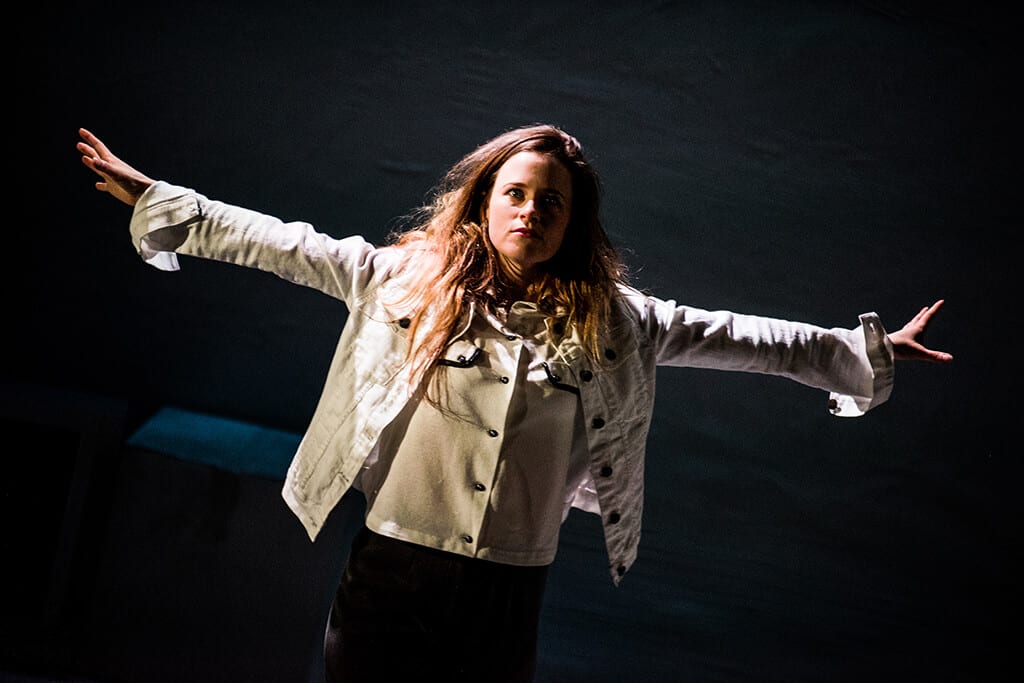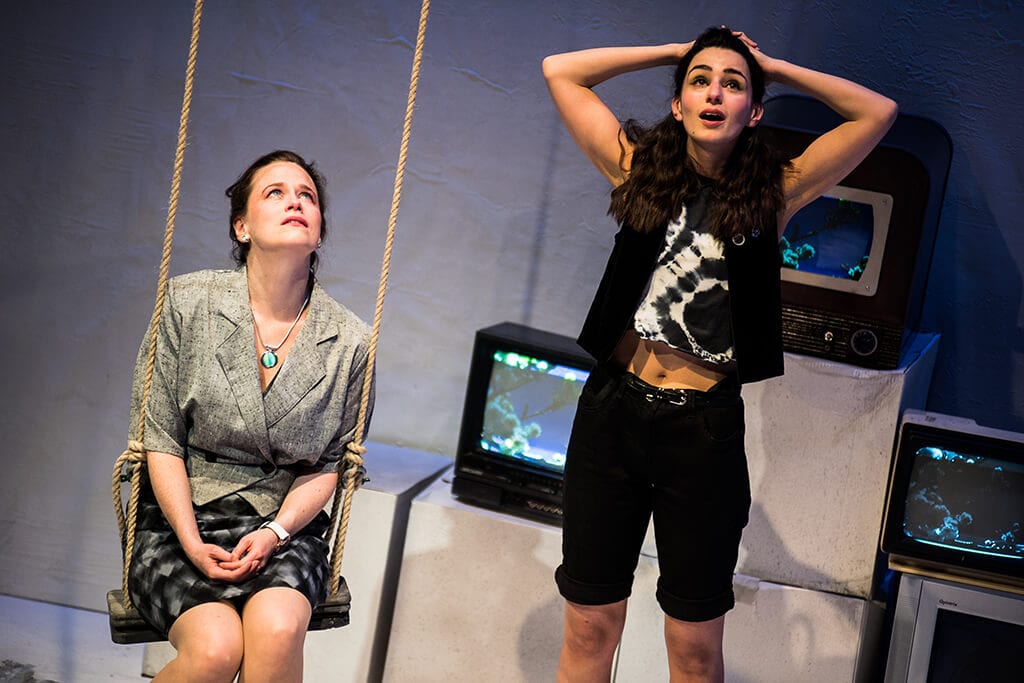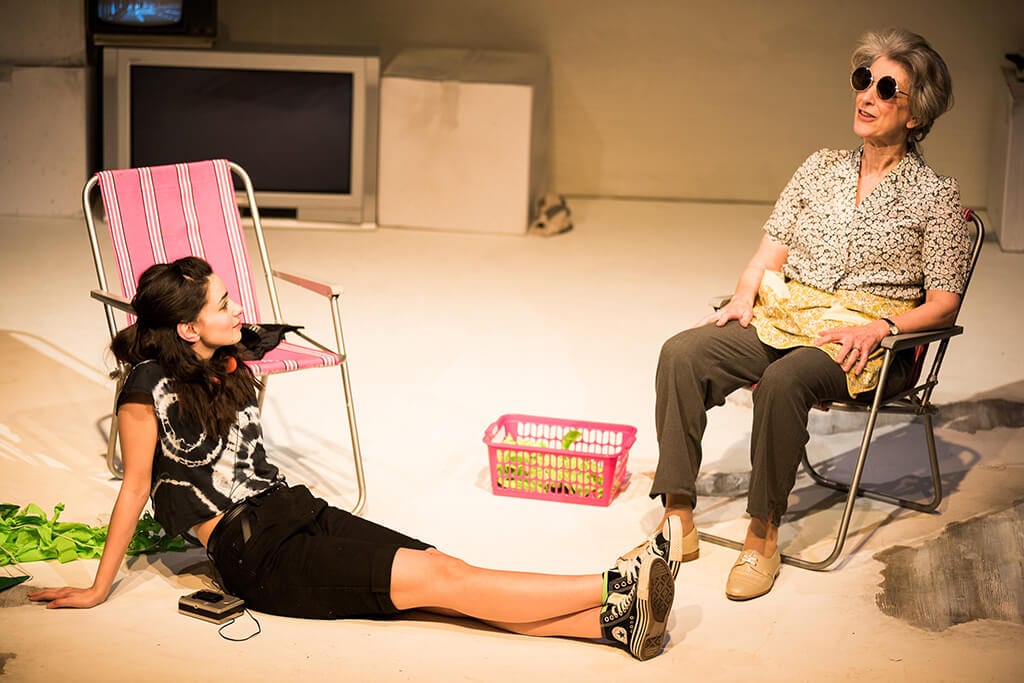This is the first London-based production of My Mother Said I Never Should since its initial run at the Royal Court nearly thirty years ago. In that period it has become a staple of our literary canon. It is studied by GCSE students and is apparently the most-performed play by a female writer.
The story spans fifty years and four generations of the same family – or rather, the female line of that family. Men are referred to but are never present: this is very much a female story, about the relationships between mothers and daughters and the changing place of women in society during the 20th century. Doris, played by Maureen Lipman, is the matriarch, whose daughter Margaret (Caroline Faber) grows up and marries an American serviceman in the years following World War Two. Margaret’s daughter Jackie (Katie Brayben) becomes a teenage hippie in the sixties, and gets pregnant just when she’s about to leave for art college. The fulcrum of the play is the decision that she and Margaret make when the baby, Rosie, is born: that Margaret will bring up the baby as her own, while Jackie pursues her career as a promising artist.
There is ambiguity built in to this arrangement. Jackie is self-centred and hedonistic, but her drive to be a mother is strong and her departure from the baby is a wrench. Margaret’s motivations are also complex. She wants Jackie to make something of herself – “otherwise what will it all have been for?”, she asks – but an implied loss of one of her own babies earlier in the play suggests that she may also have a gap in her own life that she is trying to fill.
These faultlines dominate the remainder of the play, as the characters age and their relationships develop. And these relationships are neatly drawn, managing to capture some of the deliberate and accidental meanness of familial dialogue without ever completely poisoning the well of warmth and love that they are all drawing on. Maureen Lipman, unsurprisingly, is spectacularly good as Doris, and gets all the best lines. Caroline Faber also puts in an excellent and understated turn as Margaret. A little more understatement could have gone down well elsewhere in the production, though. Owing to the time-hopping nature of the narrative, all of the characters at various points play themselves as children – most notably during a surreal subplot in which all the characters are children together, playing out children’s games with sinister Freudian overtones – and these struck a bit of a bum note. Children can get away with being loud and bumptious because, well, they’re cute kids. When four adults do it for an extended period of time it becomes a bit tiring and I found these interludes distracted from the narrative rather than adding to it.
My Mother Said I Never Should must have been quite transgressive when it was first staged, casting light on ‘things that weren’t spoken about’ and telling the story of a family purely through the experiences of the women. Thirty years on, the characterisation are just as sharp but the story has lost some of its impact. The grandmother-raising-a-child-as-her-own trope is familiar from a million soap opera storylines (admittedly probably inspired by this play) and the notion of a non-nuclear family is no longer taboo. So while there are some great moments – Maureen Lipman’s closing soliloquy, for example, is worth the ticket price on its own – the overall effect is of a period piece, and perhaps not in the way that was intended.





